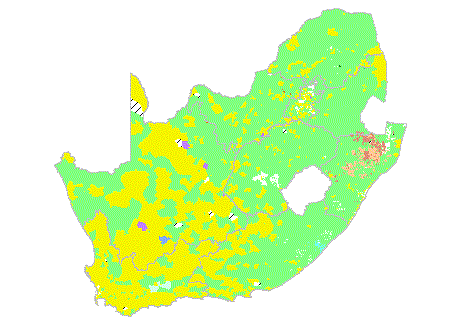South Africa’s 2014 Election Results
10 May 2014

With the votes counted, The South African Electoral Commission reports the ruling African National Congress (ANC) has garnered 62.2% of the national vote, the opposition Democratic Alliance (DA) 22.2%, and Julius Malema’s Economic Freedom Fighters (EFF) 6.3%. The Inkatha Freedom Party (IFP) took a mere 2.4% and the congress of the People (COPE), the breakaway party associated with former President Thabo Mbeki, has collapsed to less than one percent of the vote.
There are four headline numbers in the results. First, voter turnout (73.4%), although high by international standards, was the lowest in South Africa since the historic transitional election of 1994, when 87% of South Africans participated in the poll. Second, the ANC’s share of the vote has dropped to 62.2% the lowest since 1994 and a significant decline from nearly 70% captured a decade ago. Third, the opposition DA has steadily grown in vote share, from merely 1.7% in the founding election (when the Democratic Party ran solo), to the current result of 22.2%. The ANC looks set to retain a majority in all provinces except Western Cape, where the DA has held sway since 2009. Fourth, Julius Malema’s populist party, the EFF, has failed to gain double digits, though the party did garner nearly 1.2 million votes, indicating significant pockets of dissension from the party status quo.
For the moment, the ANC has shown resilience in the face of challenges from the left, and to a lesser degree, the center-right of the South African political spectrum. Julius Malema’s party, despite some predictions, turned in an impressive though hardly dominant performance, giving them a position in Parliament that potentially opens the door to a vocal left opposition, if they can take advantage of their new political niche. The DA has nearly doubled its vote share over the past decade, suggesting that the party’s messages of effective governance, service delivery, and anti-corruption are resonating with many voters, though it is less clear that ideas of economic liberalization have equal appeal. Moreover, the party’s challenges of broadening its base, aggravated by the Agang/Ramphele muddle, will probably limit its position in national politics. Nonetheless, the evident generational change in the electorate and party leadership serve to underscore the tensions in the ANC coalition and the likely momentum of challenges to the ruling party. Whether this can lead to intra-party reform or a more plural policy landscape are the pressing questions looking ahead.

